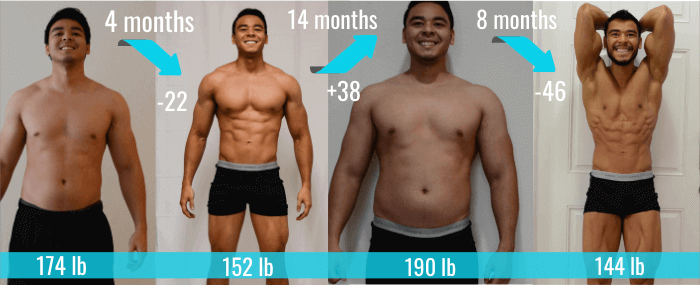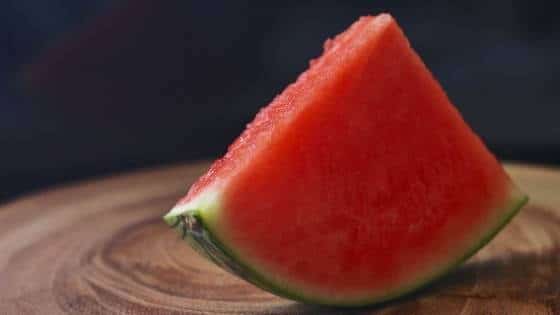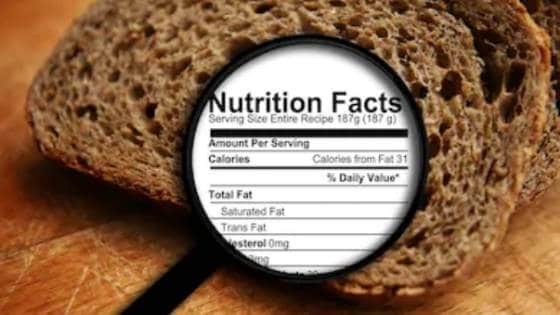Truth is, you’ll probably lose weight with any diet as long as you stick to it, in fact, research shows that 85% of overweight people are able to lose a significant amount of weight during their lifetime.
The issue comes, however, when the diet is over.
Studies (1) have shown that 70% of them will gain all the weight they’ve lost within a year, 85% will gain it within 2 years, and 95% will gain it within 3 years.
They’ve also shown that 1/3 to 2/3 of those who regain the weight will gain even more weight than they started with. Myself included.

So, why do diets fail?
Diets often fail because of their lack of sustainability, failure to educate, and the metabolic adaptations that come from weight loss.
1. Lack of Sustainability
The best diet is the one you can stick to long-term.
Before starting a diet you should ask yourself, “is this something I see myself doing for 5+ years?”
If you do and it fits perfectly with your lifestyle, then go for it! If you can’t sustain it, you’ll quickly revert to your old eating habits after the diet is over.
- Too Restrictive, Cravings & Bad Eating Habits
Most diets tell you to avoid certain food groups.
Studies show that restricting a specific food puts you at higher risk of binging on the food you were trying to avoid.
Not only that, but you also begin to create an unhealthy relationship with food by labeling them as “good” or bad” and miss out on social events, which can negatively impact your psychological well-being.
You believe that eating something outside of what’s allowed in your diet will ruin your progress.
You get bombarded with donuts at work every week, but always decide to stay strong and not cheat, until one week, you can’t hold it and finally have one.
What happens now?
Probably nothing, but your brain tells you that you’ve ruined your progress, so you start to get depressed.
You then say, “screw it, I’ve already messed up, might as well eat more” and you end up binge eating.
Start your journey to losing 24-60 pounds in just 12 weeks.
Get the free 12-Week Fat Loss Challenge Training Guide!

2. Failure to Educate
Most diets fail to educate you about nutrition, leaving you with no idea of what to do after the diet is over.
“Give a man a fish, and you’ll feed him for a day. Teach a man to fish, and you’ve fed him for a lifetime.” – Confucious
If you took the same will power and dedication it takes to stick to a diet to actually learning the basics of nutrition, you would be way more successful!
Think about long-term sustainability instead of short-term satisfaction.
3. Yo-yo Dieting & Your Metabolism
Yo-yo dieting can negatively impact your metabolism.
This section is not meant to scare you away from dieting, but to show you why it’s important to find a diet that you can stick to and avoid the cycle of losing and gaining weight.
Your body fights you every time you decide to lose weight, it doesn’t go: “oh, you’re trying to lose weight? cool, let me help you.”
It only sees that you’re eating less food than it needs and goes “holy crap, why are you starving me? I better start saving some energy.”
Your body then enters the “energy-saving” mode and a few things start to happen:
- Lowered BMR (Basal Metabolic Rate)
Your body will burn fewer calories each day to save energy, this is why you can be losing weight and eventually plateau. Your BMR has changed, and you need to lower your calories even more.
- Increased Hunger
It also increases the secretion of ghrelin – the hunger hormone that increases appetite – to make you eat more (food = energy).
- Creation of New Fat Cells
During weight loss, your body becomes more efficient at storing energy.
Studies (2) have shown that people are prone to creating new body fat cells at the end of a diet.
This can help explain why people tend to regain more weight than they’ve lost and why it’s harder to lose weight the next time around.
There’s a study (3) done on rats where they made the rats lose weight, then gain it back, lose it again, and gain it back again.
During both dieting periods, they had them on the same amount of calories.
During the first dieting period, they lost weight at a 1x rate and gained it back 2x as fast.
The second time around, they made them diet again with the same number of calories they dieted at the first time but found that they were losing weight 1/2x as fast as the first time and regaining it 3x quicker.
Q: What are your biggest struggles when it comes to weight loss?
Let me know in the comments section below!
I hope you enjoyed this article about why diets fail!
If you’re ready to start your weight loss journey, the 12-Week Fat Loss Challenge is the place to start!

This plan helps men and women lose fat without starving themselves or giving up their favorite foods.





